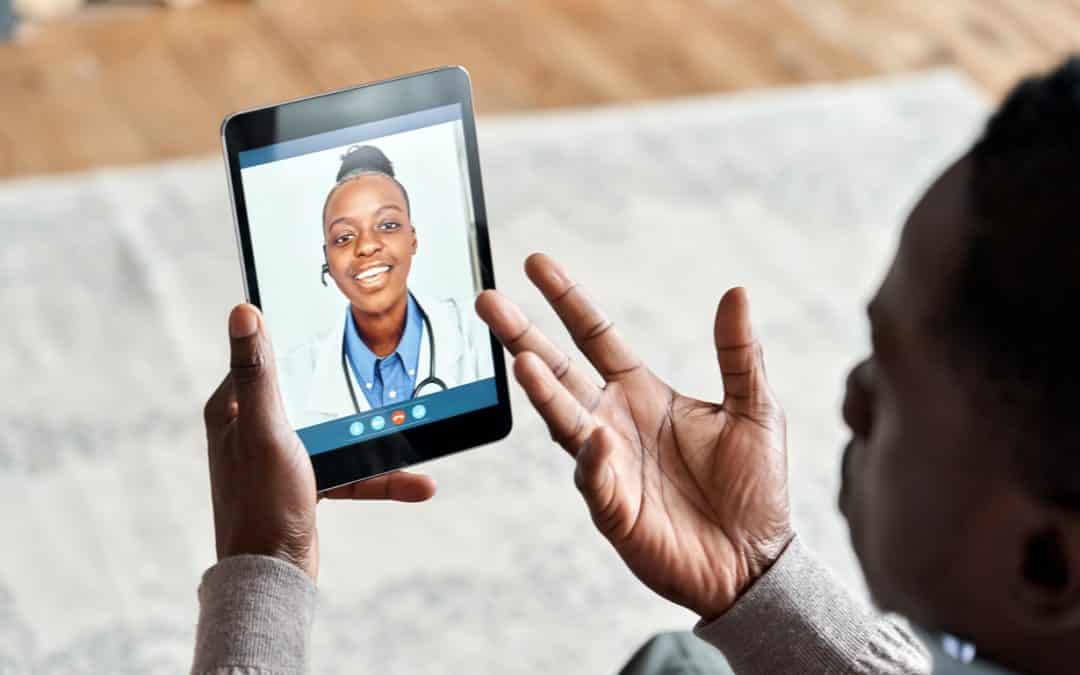
Imagine waking up with a throbbing headache and a sore throat. In the past, you’d likely groan at the thought of dragging yourself out of bed, driving to the doctor’s office, and enduring long wait times. Now, picture this: you grab your phone, schedule a virtual consultation, and within minutes, you’re face-to-face with a healthcare professional from the comfort of your home. This is the magic of telemedicine.
What is Telemedicine?
Telemedicine refers to the practice of using technology to deliver healthcare services remotely. It leverages telecommunications technology to provide clinical care from a distance, bridging the gap between patients and healthcare providers. As telemedicine continues to evolve, it offers numerous benefits, faces various challenges, and is poised to undergo significant advancements in the future.
Benefits of Telemedicine in Nigeria

Telemedicine has transformed how we think about healthcare, making it more accessible, convenient, and efficient. Whether you’re in a bustling city or a remote village, telemedicine bridges the gap, ensuring that quality healthcare is just a click away. Here are some of the benefits of telemedicine:
Read: Top 10 Daily Habits for a Healthier Lifestyle
1. Increased Access to Care
In Nigeria, telemedicine significantly enhances access to healthcare, particularly in rural areas where medical facilities are scarce. For example, platforms like Dokita247 and Safermom provide remote consultations, allowing patients in remote regions to consult with doctors without traveling long distances.
2. Convenience and Efficiency
Telemedicine offers unparalleled convenience for Nigerians, especially those in urban areas with hectic lifestyles. Services like Lifebank enable patients to schedule appointments and receive consultations via smartphones, saving time and reducing the need for physical visits.

3. Cost Savings
Telemedicine can lead to considerable cost savings for patients and healthcare providers in Nigeria. For instance, CribMD offers affordable telehealth services that eliminate transportation costs and reduce the need for more expensive emergency care by addressing health issues promptly.
4. Improved Patient Engagement and Outcomes
Platforms like Wellvis enhance patient engagement by providing easy access to healthcare advice and follow-ups. Remote monitoring tools and health education resources available on these platforms help patients adhere to treatment plans, resulting in better health outcomes.
5. Enhanced Access to Specialists
Telemedicine in Nigeria connects patients with specialists who may not be locally available. These platforms offers teleconsultations with international specialists, providing expert opinions and treatment recommendations that improve patient care.
Read: Common Misconceptions About Mental Health
Future Trends in Telemedicine in Nigeria
1. Advances in Technology
As technology evolves, telemedicine in Nigeria will benefit from advancements such as artificial intelligence (AI), machine learning, and the Internet of Things (IoT). These technologies can enhance diagnostic accuracy, enable predictive analytics, and facilitate remote patient monitoring.
2. Expanded Use of Remote Monitoring
The use of remote monitoring devices is expected to increase in Nigeria. These devices allow healthcare providers to track patients’ vital signs and health metrics in real-time. This continuous monitoring can lead to early detection of potential health issues and more proactive care management.
3. Telemedicine for Mental Health
Telemedicine is well-suited for mental health services, and its use in this field is expected to grow in Nigeria. Virtual therapy sessions and remote psychiatric consultations can increase access to mental health care, particularly in areas with a shortage of mental health professionals.
4. Integration with Wearable Devices

Integrating telemedicine with wearable health devices like fitness trackers and smartwatches will provide healthcare providers with more comprehensive data on patients’ health and activity levels. This information can be used to personalize treatment plans and improve patient outcomes.
5. Policy and Reimbursement Changes
As telemedicine becomes more mainstream in Nigeria, there will likely be changes in policy and reimbursement structures to support its continued growth. The Nigerian government and insurance companies may implement more favorable policies to encourage the adoption of telemedicine and ensure its sustainability.
6. Global Expansion
Telemedicine has the potential to expand globally, improving healthcare access in developing countries and remote regions. International collaborations and partnerships can facilitate the spread of telemedicine technologies and practices, addressing global health disparities.
Telemedicine represents a significant advancement in healthcare delivery, offering numerous benefits such as increased access to care, convenience, cost savings, and improved patient outcomes.
Telemedicine is poised for continued growth and innovation, driven by technological advances, expanded remote monitoring, and evolving policy landscapes. By addressing some challenges and embracing future trends, telemedicine can play a crucial role in shaping the future of healthcare in Nigeria and beyond.
